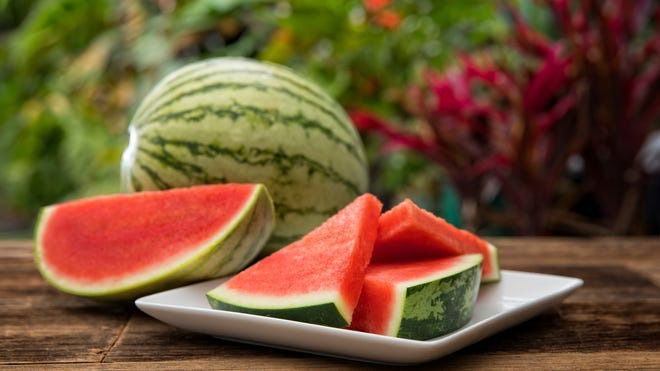While watermelon is packed with health benefits, it’s not a one-size-fits-all fruit. Some individuals should approach it with caution to avoid unwanted health effects.
Who Should Exercise Caution When Eating Watermelon?
1. People with Diabetes
Despite being low in calories, watermelon has a high glycemic index, meaning its natural sugars are rapidly absorbed, which can lead to spikes in blood sugar.
People with diabetes or prediabetes should limit how much they eat or seek medical advice to determine an appropriate portion.
2. People with Sensitive Digestive Systems

Watermelon’s high water content and cooling nature can cause digestive upset when consumed in large amounts, especially for people with fragile digestion, stomach ulcers, or irritable bowel syndrome (IBS).
These people may experience diarrhea or discomfort and should either eat small portions or avoid it if symptoms occur.
3. People with Allergies
Although rare, some people can be allergic to watermelon. Signs may include itching, swelling around the mouth, skin redness, or even breathing difficulties.
Anyone experiencing such symptoms should stop eating it right away and consult a healthcare provider.
4. People with Kidney Problems or Undergoing Dialysis

Watermelon contains significant potassium, which is usually beneficial.
However, for people with kidney disease or those receiving dialysis, too much potassium can disrupt heart and muscle function.
Medical guidance is essential before including watermelon in their diet.
5. Young Children and the Elderly
The digestive systems of infants and older adults tend to be more delicate.
Overconsumption can lead to stomach upset, loose stools, or chills. It’s best to serve them watermelon in small, spaced-out amounts.
Final Thoughts

Watermelon is a refreshing and nutritious treat, especially in the heat of summer. However, it’s not suitable for everyone.
People dealing with diabetes, digestive sensitivity, allergies, kidney issues, or those in more vulnerable age groups should be mindful of their intake.
Moderation is key, and paying attention to how your body reacts is crucial. When in doubt, seek advice from a medical professional or dietitian to enjoy watermelon safely.





